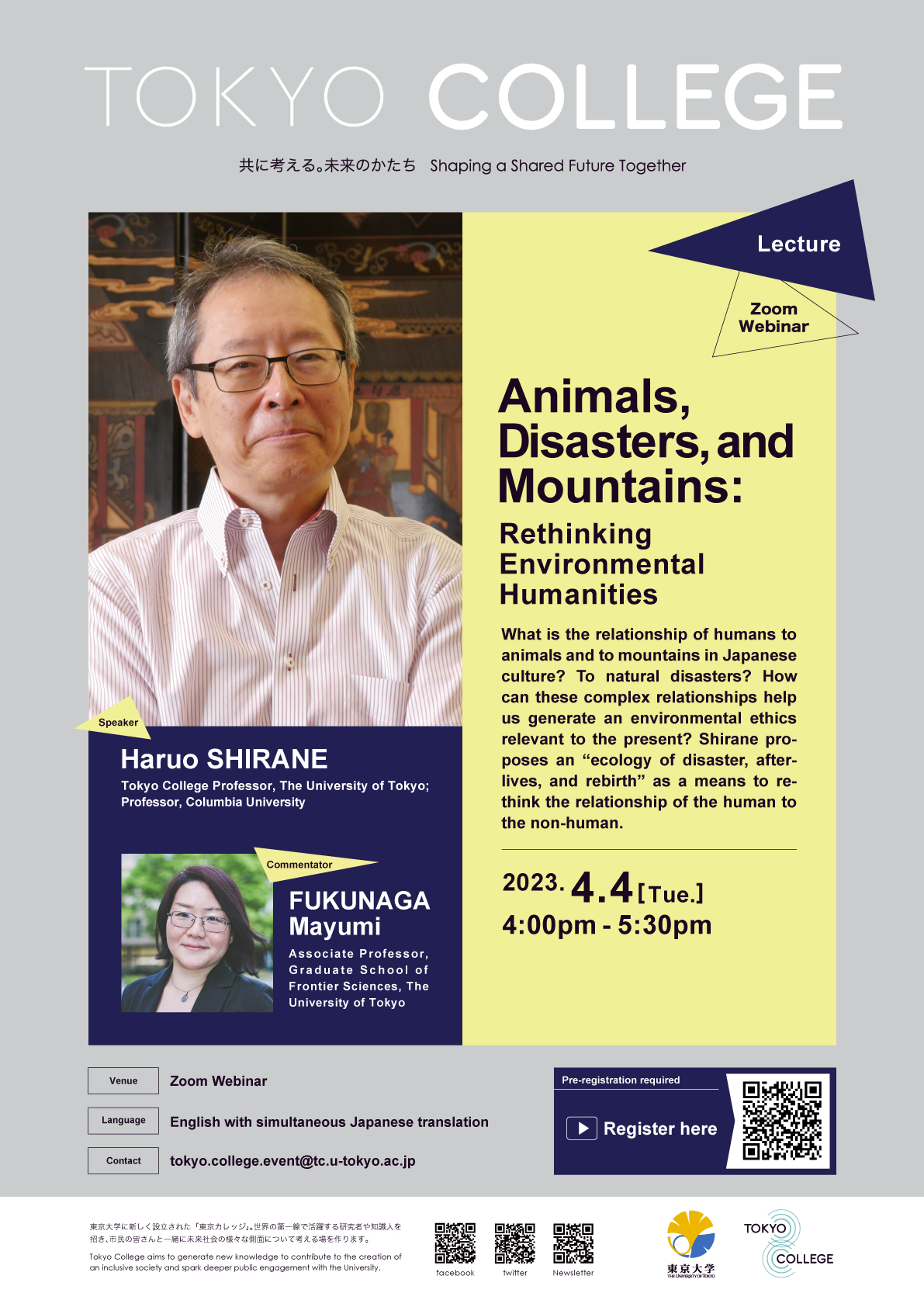Animals, Disasters, and Mountains: Rethinking Environmental Humanities (Prof. Haruo SHIRANE )

| Date(s) | Tuesday, 4 April 2023, 4:00-5:30 pm |
|---|---|
| Venue |
Zoom Webinar (Register here) |
| Registration | Pre-registration required |
| Language | English (Japanese simultaneous translation available) |
| Abstract |
What is the relationship of humans to animals and to mountains in Japanese culture? To natural disasters? How can these complex relationships help us generate an environmental ethics relevant to the present? Shirane proposes an “ecology of disaster, afterlives, and rebirth” as a means to rethink the relationship of the human to the non-human. |
| Program |
Lecture Comment Q&A
Moderator |
| Organized by | Tokyo College, The University of Tokyo |
| Contact | tokyo.college.event@tc.u-tokyo.ac.jp |
















